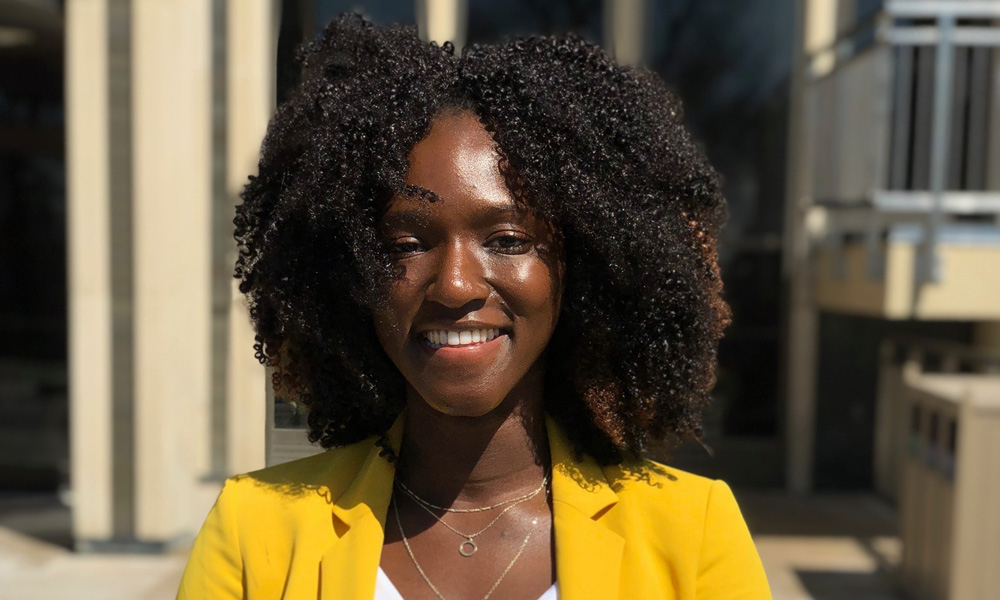It should come as no surprise that being a college student can be stressful. Rigorous academics, exploring new avenues, and making and maintaining relationships takes time and energy. Tima Kaba ’19 says she’s found an effective solution — meditation. “A lot of times we want to run away from things. Meditation forces you to face it. And by facing it, you can come up with solutions.”
Meditation can be an intimidating word for some. “People think it forces you to look back in the past and evoke emotions they’re not ready to face,’ says Kaba. “But in reality, meditation makes you acknowledge things and makes you want to move on from that. What did I learn from this and how can I move on from it? I’m not perfect. I’m still learning. Through meditation, I learned to forgive myself and others.”
Kaba sees meditation as another tool for well-being. “Sometimes we seek counseling. Sometimes we just need to vent to our friends. I say, ‘Let’s go meditate.’ If you take a moment to pause, re-group, and let go of it, you can see the issue through a different perspective. Meditation helps you stay focused on the big picture and to see that things will get better.”
The French major discovered meditation while she studied abroad in Botswana. Away from her friends and her support systems, she taught herself to meditate, to be present, and to acknowledge her feelings in the moment. She found it helped her deal with the stress of living, studying and exploring in a new country.
When Kaba returned to the U.S., meditation helped her re-entry process. And she’s observed a lot of very positive impacts — like sleeping well at night. “My mind used to race sometimes or I’d feel anxious. Meditation has helped me to stay focused and not to be sidetracked by things I can’t control. And to stop worrying about the unexpected or what’s to come.”
The mindfulness room on the fourth floor of Slayter is “a great space to bring three or four friends to meditate together and go on our way.” Kaba sometimes hosts informal meditation sessions with friends that can include dinner, facilitating a short meditation, and then spending time talking and reflecting together.
In fact, group meditation can be an incredibly powerful tool, providing “the space for people to pause and reflect,” says Kaba. “I sometimes say ‘storytelling through meditation and meditation through storytelling’ because they’re so intimately connected with one another.”
Kaba also has held workshops for peers. “Some people have never meditated before. They say, ‘I don’t know how to do this.’ and I always reply, ‘You don’t have to go to a mindfulness camp to learn this. You do what’s comfortable for you.’” She doesn’t have rigid rules for protocol. “You can lie down, sit, stand, as long as you feel ready to be present.”
Kaba turns to resources like the apps Headspace and Insight Timer, which provide tools to explore. She also taps into different resources depending on her needs on a given day.
Meditation even helps her make connections. When Kaba met author and entrepreneur David Howitt ’90 at ReMix, Denison’s entrepreneurial summit, Howitt shared his own practices of meditation and how he carves out space in a busy day to meditate. He especially recommended spending a few minutes at different points throughout the day to meditate — no matter how jammed your schedule is.
Kaba has incorporated his advice. She spends 20 minutes a day meditating, breaking it into smaller increments: “When on A-Quad, I’ll sometimes run into the mindfulness room in Slayter to meditate for three minutes between classes.”
“Meditation makes me feel great — and I want to share that with other people.”
